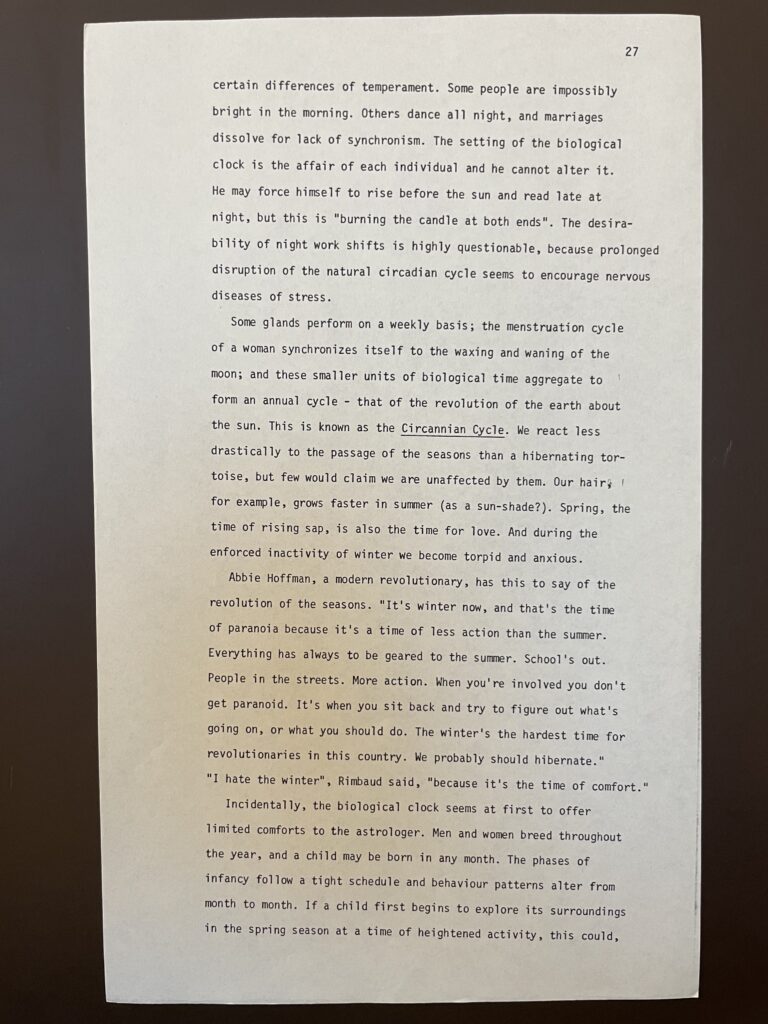The Nomadic Alternative – Page 27
The Nomadic Alternative
Page 27
certain differences of temperament. Some people are impossibly bright in the morning. Others dance all night, and marriages dissolve for lack of synchronism. The setting of the biological clock is the affair of each individual and he cannot alter it.
He may force himself to rise before the sun and read late at night, but this is “burning the candle at both ends”. The desirability of night work shifts is highly questionable, because prolonged disruption of the natural circadian cycle seems to encourage nervous diseases of stress.
Some glands perform on a weekly basis; the menstruation cycle of a woman synchronizes itself to the waxing and waning of the moon; and these smaller units of biological time aggregate to form an annual cycle – that of the revolution of the earth about the sun. This is known as the Circannian Cycle. We react less drastically to the passage of the seasons than a hibernating tortoise, but few would claim we are unaffected by them. Our hair, for example, grows faster in summer (as a sun-shade?). Spring, the time of rising sap, is also the time for love. And during the enforced inactivity of winter we become torpid and anxious.
Abbie Hoffman, a modern revolutionary, has this to say of the revolution of the seasons. “It’s winter now, and that’s the time of paranoia because it’s a time of less action than the summer. Everything has always to be geared to the summer. School’s out. People in the streets. More action. When you’re involved you don’t get paranoid. It’s when you sit back and try to figure out what’s going on, or what you should do. The winter’s the hardest time for revolutionaries in this country. We probably should hibernate.”
“I hate the winter”, Rimbaud said, “because it’s the time of comfort.”
Incidentally, the biological clock seems at first to offer limited comforts to the astrologer. Men and women breed throughout the year, and a child may be born in any month. The phases of infancy follow a tight schedule and behaviour patterns alter from month to month. If a child first begins to explore its surroundings in the spring season at a time of heightened activity, this could,
Editor's Note: This text has been transcribed automatically and likely has errors. if you would like to contribute by submitting a corrected transcription.
